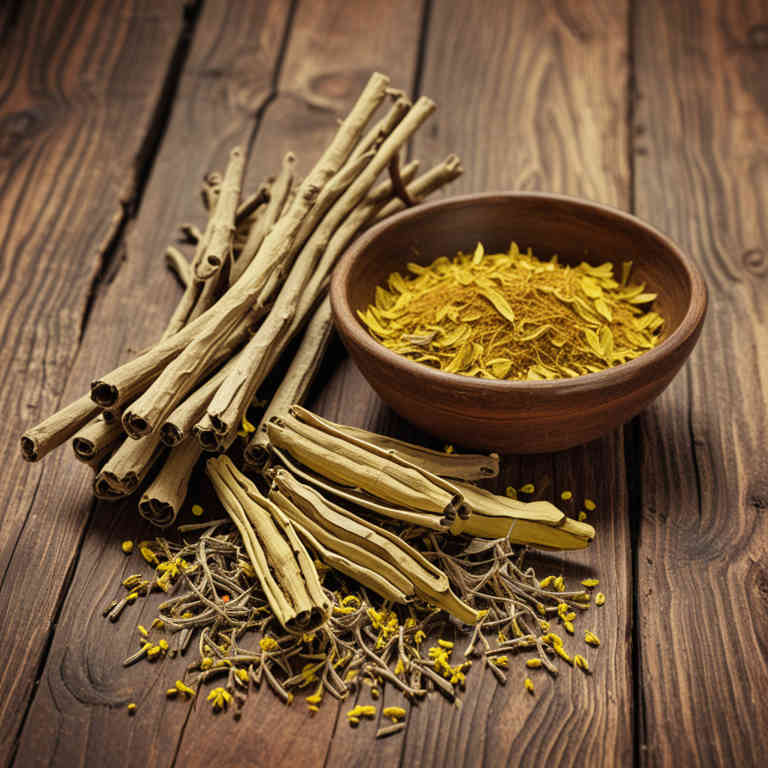Cassia auriculata decoction for medicinal use

Cassia auriculata decoction is a traditional herbal preparation made by boiling the leaves, flowers, or bark of the Cassia auriculata plant in water.
This decoction is commonly used in Ayurvedic and traditional Indian medicine for its purported therapeutic properties. It is often employed to treat ailments such as digestive issues, skin conditions, and inflammation due to its antioxidant and anti-inflammatory effects. The preparation is typically consumed as a tea or applied topically for its soothing and healing properties.
In herbalism, it is valued for its ability to support overall health and balance within the body.
Uses
Cassia auriculata decoction has been used to treat various ailments in traditional medicine systems across South and Southeast Asia for centuries.
Historically, it was valued for its anti-inflammatory, antimicrobial, and antidiabetic properties, often prepared from the leaves and flowers of the plant. In Ayurveda and traditional Chinese medicine, it was used to manage skin conditions, digestive issues, and fever. Modern research has supported some of these traditional uses, showing potential benefits in reducing inflammation and managing blood sugar levels.
Today, it is also explored as a natural remedy for respiratory and gastrointestinal disorders.
Benefits
Cassia auriculata decoction has health benefits such as reducing inflammation, supporting digestive health, and promoting skin healing.
It is commonly used in traditional medicine to treat ailments like ulcers and skin infections due to its antibacterial and anti-inflammatory properties. The decoction may also help in managing diabetes by improving insulin sensitivity and regulating blood sugar levels. Additionally, it is believed to have antioxidant effects that protect the body from free radical damage.
Overall, Cassia auriculata decoction is valued for its potential therapeutic uses in various health conditions.
Constituents
Cassia auriculata decoction active constituents include alkaloids, flavonoids, tannins, saponins, and glycosides.
These compounds contribute to the decoction's potential health benefits, such as anti-inflammatory, antimicrobial, and antioxidant properties. Alkaloids like cassine and auriculatine may support digestive and cardiovascular health. Flavonoids and tannins help in reducing oxidative stress and improving skin health.
Saponins and glycosides are believed to enhance immune function and aid in detoxification processes.
Preparation
To make Cassia auriculata decoction, begin by gathering 15-30 grams of dried Cassia auriculata leaves, which are commonly known as golden shower or Indian laburnum.
Wash the leaves thoroughly under running water to remove any dirt or impurities. Place the leaves in a pot and add approximately 500 milliliters of water, then bring the mixture to a boil over medium heat.
Reduce the heat and let it simmer for about 15-20 minutes, allowing the active compounds to dissolve into the water. Strain the liquid through a fine mesh or cheesecloth to separate the decoction from the plant material, and allow it to cool before use.
This preparation is often used in traditional medicine for its purported anti-inflammatory and digestive benefits.
Side Effects
Cassia auriculata decoction may lead to gastrointestinal discomfort, including nausea, vomiting, and diarrhea, due to its high concentration of compounds like tannins and saponins.
It can also cause allergic reactions in some individuals, manifesting as skin rashes, itching, or respiratory symptoms. Prolonged use may result in liver or kidney damage, as the herb contains phytochemicals that can be toxic in large doses. Additionally, it may interact with certain medications, such as anticoagulants, increasing the risk of bleeding.
Therefore, it is important to consult a healthcare professional before using this preparation, especially for long-term or therapeutic purposes.